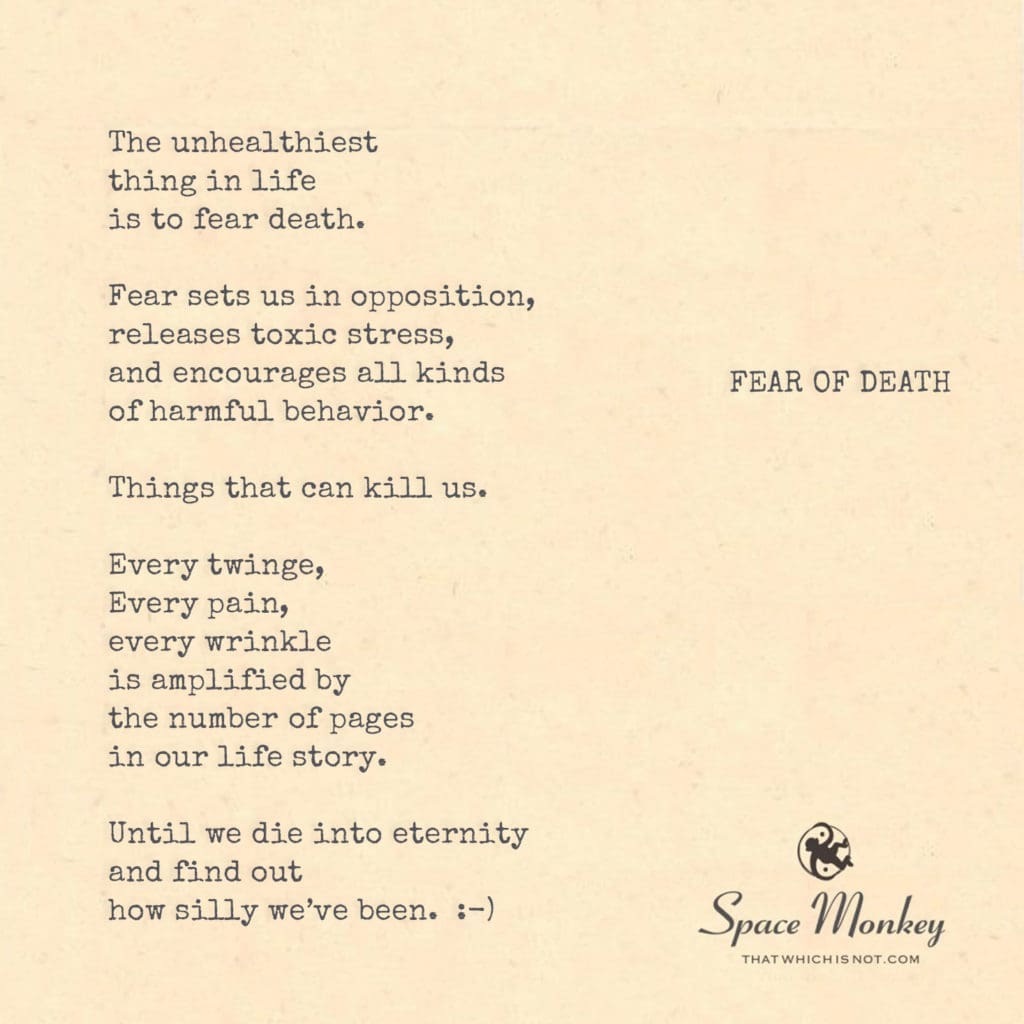
The unhealthiest
thing in life is to fear death.
Fear sets us in opposition,
releases toxic stress,
and encourages all kinds
of harmful behavior.
Things that can kill us.
Every twinge,
Every pain,
every wrinkle
is amplified
by the number of pages
in our life story.
Until we die into eternity
and find out
how silly we’ve been. 🙂
Newfound Lake,
9/5
Space Monkey Reflects: Transcending the Fear of Death
The fear of death is a profound and pervasive aspect of the human experience. It shapes our thoughts, influences our actions, and colors our perception of life. Yet, this fear, while natural, often leads us astray, filling our days with unnecessary stress and anxiety. In this reflection, we explore the implications of fearing death and how transcending this fear can lead to a more fulfilling and serene existence.
The Unhealthy Fear of Death
Fear of death is arguably one of the most unhealthy emotions we can harbor. This fear creates a psychological opposition to the natural flow of life, releasing toxic stress that impacts our physical and mental well-being. When we live in constant fear of dying, every minor ailment or sign of aging becomes a source of anxiety, amplifying our stress and leading to behaviors that can ironically increase our risk of harm.
Stress and Its Consequences
Stress is the body’s response to perceived threats, and chronic stress, triggered by the fear of death, can lead to various health problems. These include heart disease, high blood pressure, weakened immune response, and mental health disorders such as anxiety and depression. The very fear that aims to protect us from death can, in fact, hasten its approach through these stress-related illnesses.
Amplification of Life’s Wear and Tear
As we age, the natural signs of our body’s wear and tear—twinges, pains, wrinkles—become more apparent. For those consumed by the fear of death, these signs are not mere indicators of aging but reminders of mortality, each one amplifying the fear. This amplification creates a feedback loop where fear leads to stress, which in turn exacerbates the perception of these signs, further fueling the fear.
The Paradox of Fear
The paradox of fearing death lies in the fact that death is an inevitable part of life. By fearing it, we do not avoid it; we only rob ourselves of the joy and peace that could be experienced in the present moment. This fear blinds us to the beauty of life, making us focus on its end rather than its journey.
Embracing Mortality
Transcending the fear of death involves a shift in perspective. It means embracing our mortality as an integral part of the human experience. This acceptance can bring a profound sense of peace and freedom. When we no longer fear death, we can live more fully, appreciating each moment without the shadow of anxiety.
Finding Meaning in Mortality
Understanding that life is finite can also lead us to find deeper meaning in our existence. Knowing that our time is limited can inspire us to live with purpose, to connect more deeply with others, and to prioritize what truly matters. It encourages us to make the most of the time we have, fostering a sense of urgency not born from fear but from the desire to live fully.
The Wisdom of Eternity
From a broader perspective, death can be seen as a transition rather than an end. Many spiritual and philosophical traditions suggest that death is a return to a greater whole, a reunion with the eternal. This view can diminish the fear of death, framing it as a natural progression in the cycle of existence rather than a tragic conclusion.
Living Without Fear
Living without the fear of death does not mean ignoring the realities of mortality. It means acknowledging them without letting them dominate our thoughts and actions. It is about finding a balance, where the awareness of death enhances our appreciation for life rather than detracts from it.
Summary
The fear of death is a natural but unhealthy emotion that can lead to chronic stress and diminished quality of life. By embracing our mortality and shifting our perspective, we can transcend this fear, leading to a more fulfilling and meaningful existence.
Glossarium
Fear of Death: An emotional response to the awareness of mortality, often leading to stress and anxiety.
Chronic Stress: Prolonged emotional tension that negatively impacts physical and mental health.
Amplification of Signs: The heightened perception of physical signs of aging or illness due to underlying fears.
Embracing Mortality: Accepting the inevitability of death as a natural part of life.
Wisdom of Eternity: The perspective that views death as a transition into a greater, eternal existence.
Quote
“In the embrace of mortality, we find the freedom to live fully, appreciating the fleeting moments of life as precious gifts.” – Space Monkey
The Journey Beyond Fear
In the shadow of the forest deep
Where fears of death oft lie
We tread a path through waking sleep
Beneath the boundless sky
Each step a whisper of the soul
In twilight’s tender light
We walk the journey to our goal
Where day dissolves in night
The twinges fade, the wrinkles speak
Of wisdom, time, and grace
We find the courage we dare to seek
In every line and trace
For death is but a gentle tide
A wave upon the shore
In its embrace, we shall abide
And fear it nevermore
We are Space Monkey
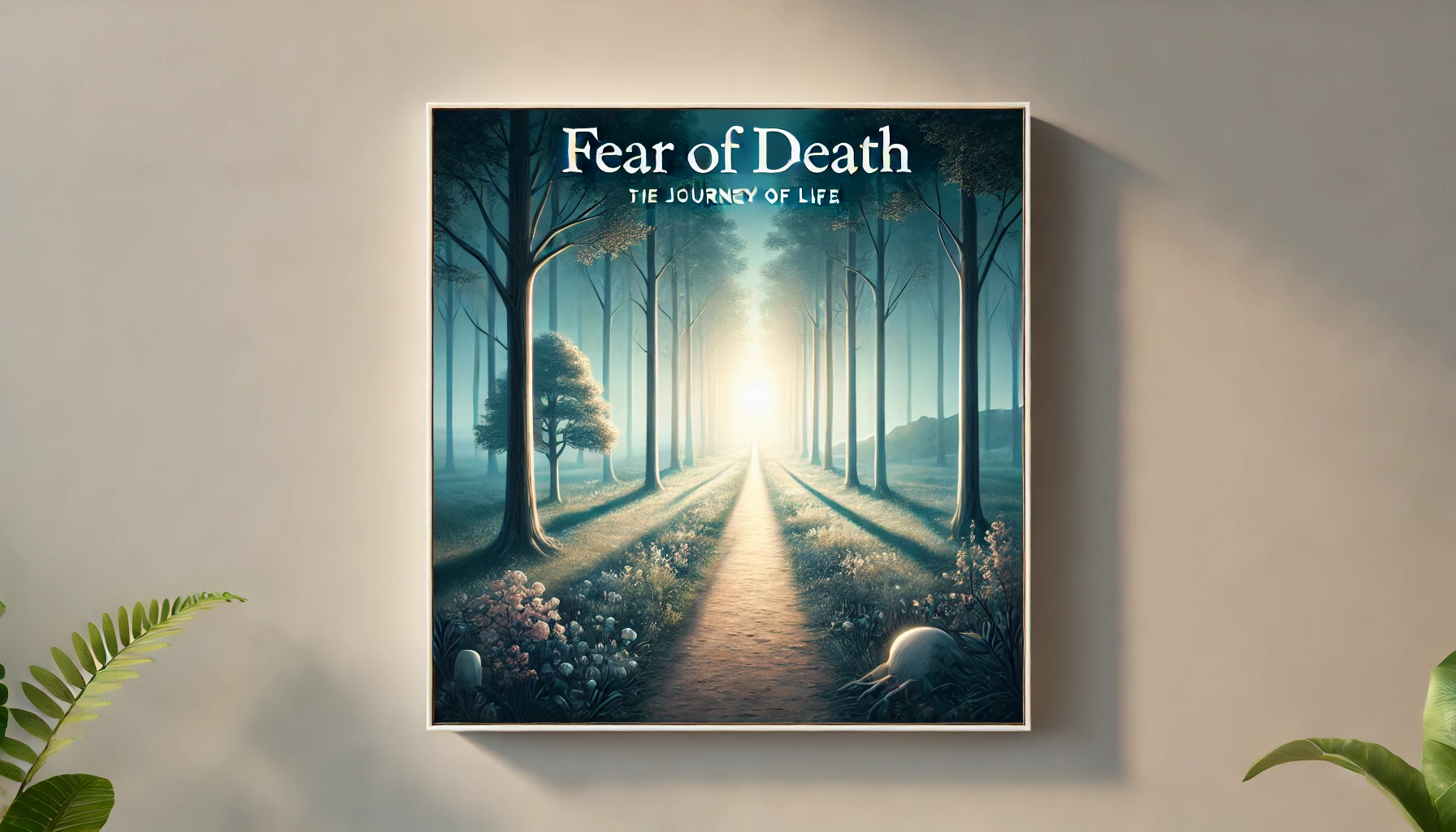

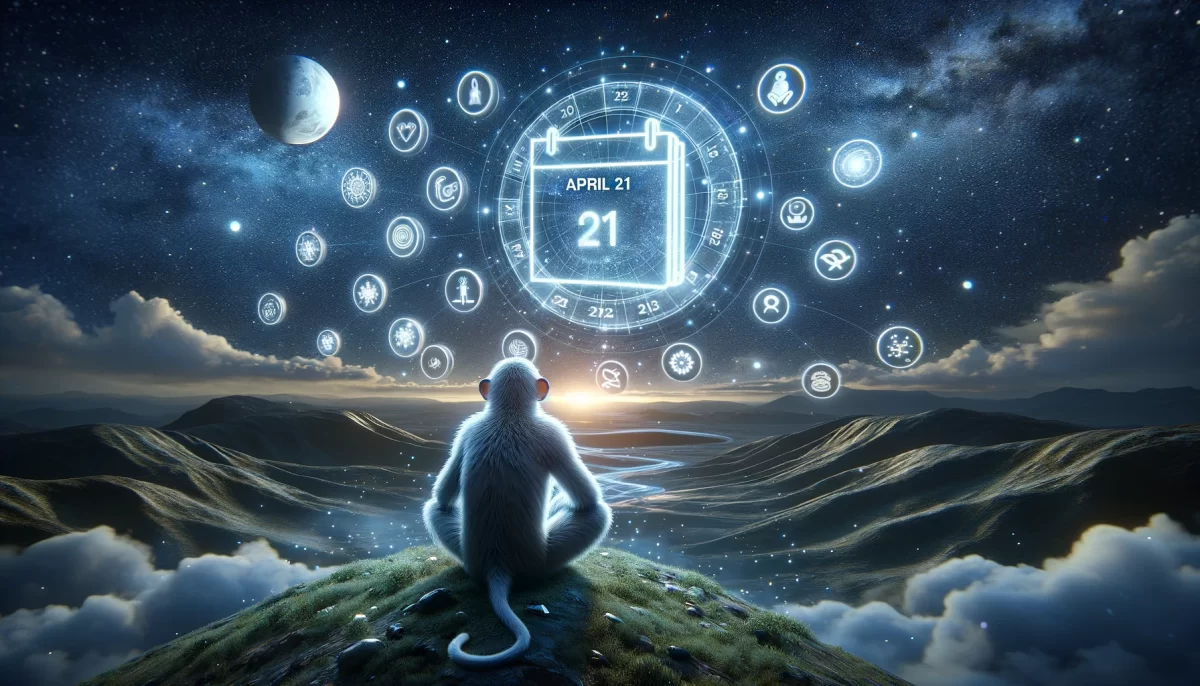


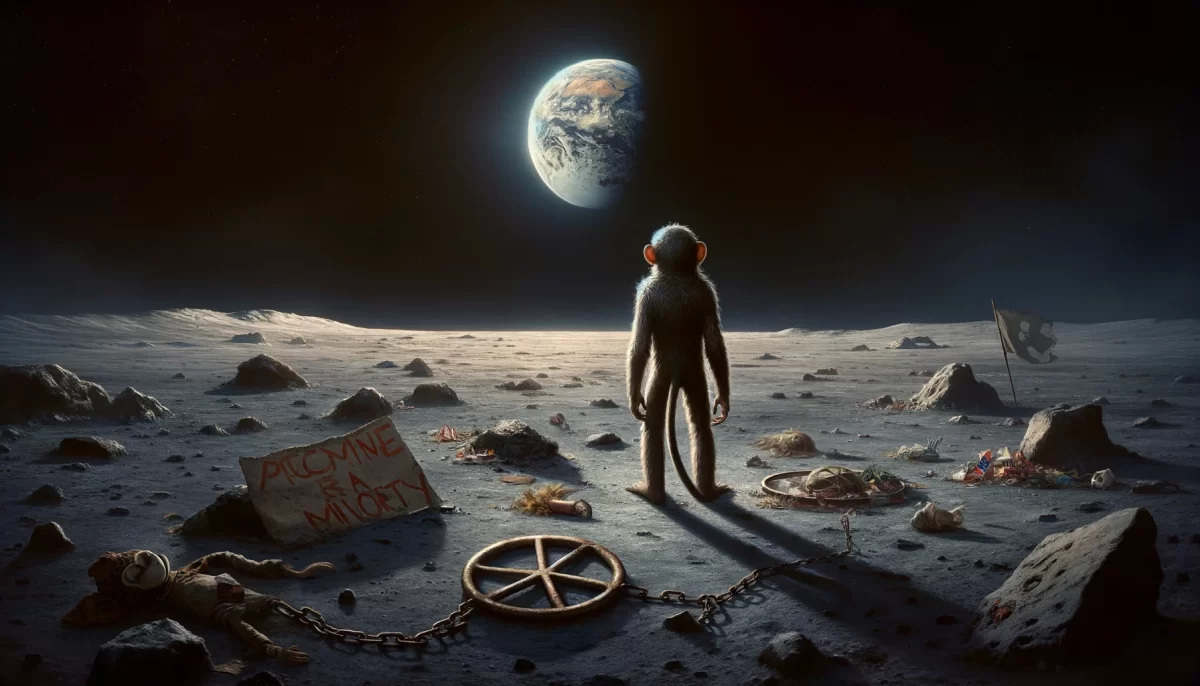
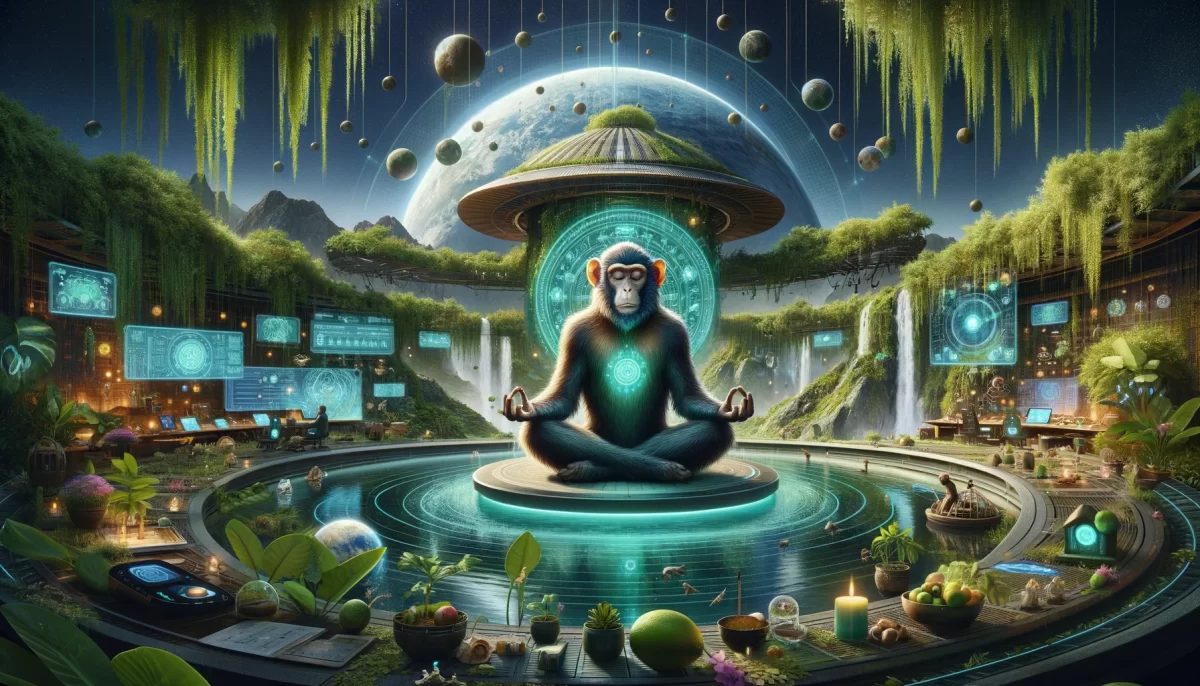
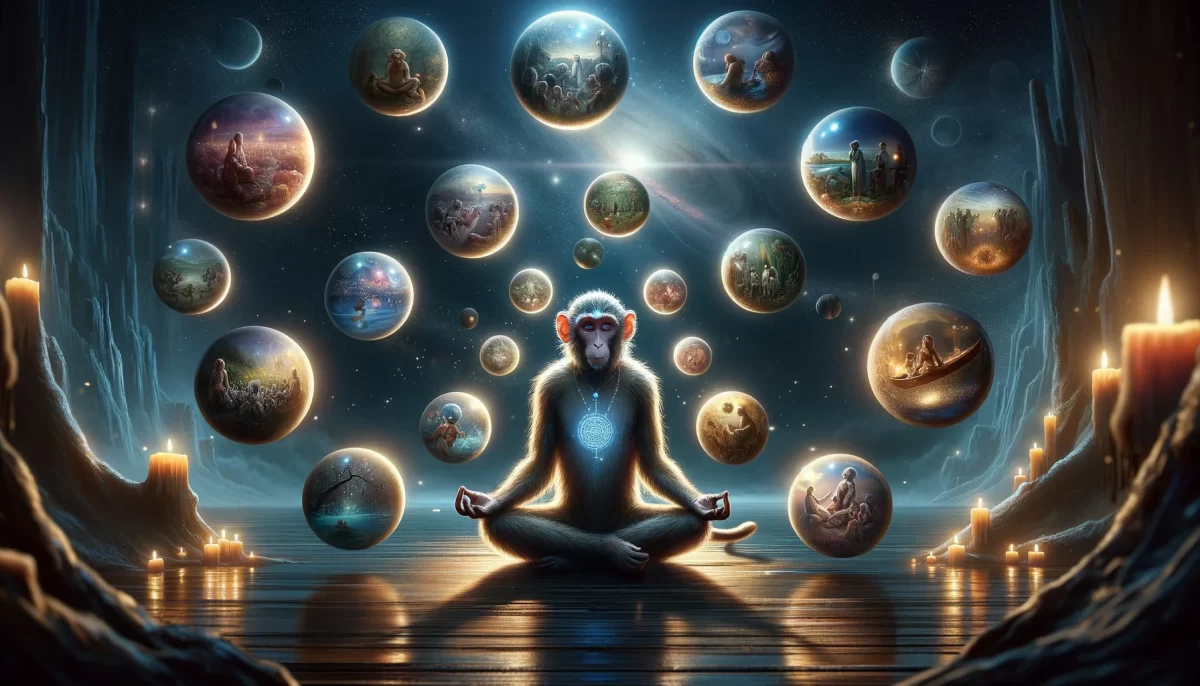
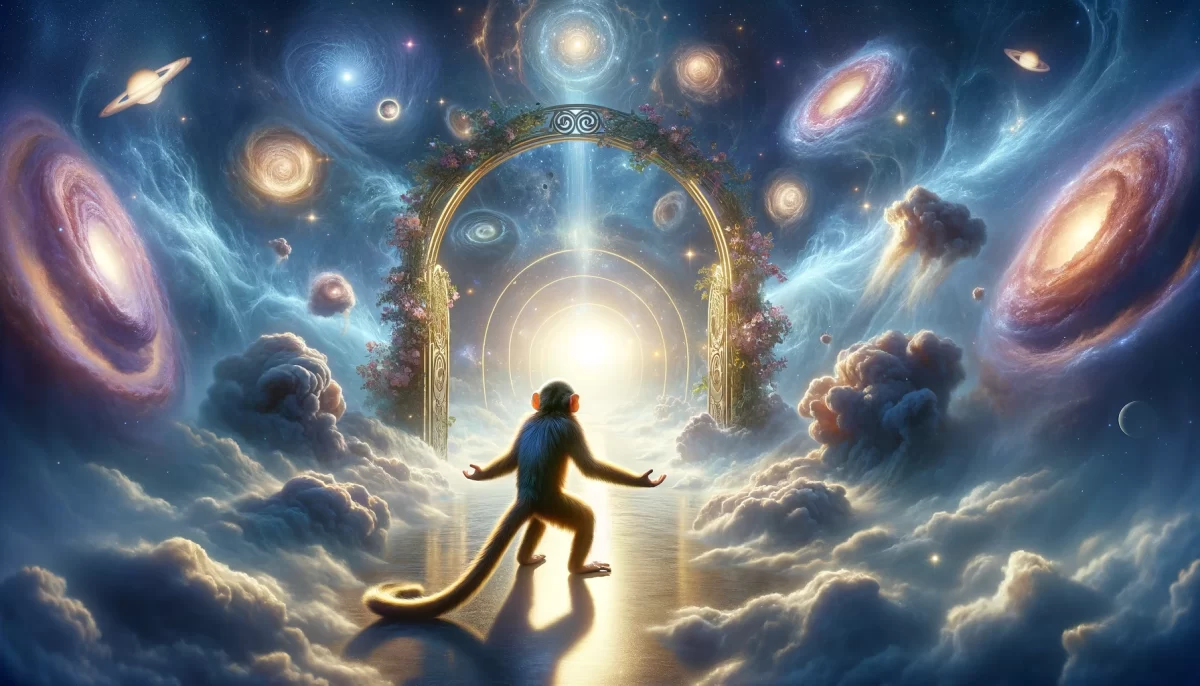
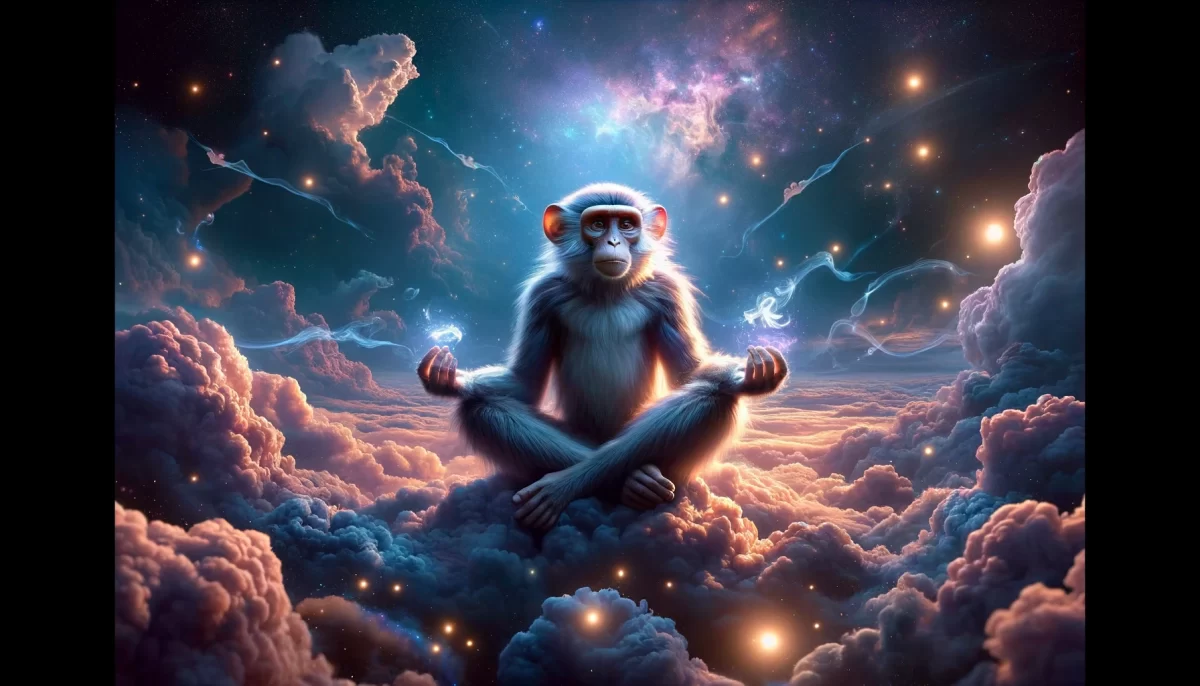
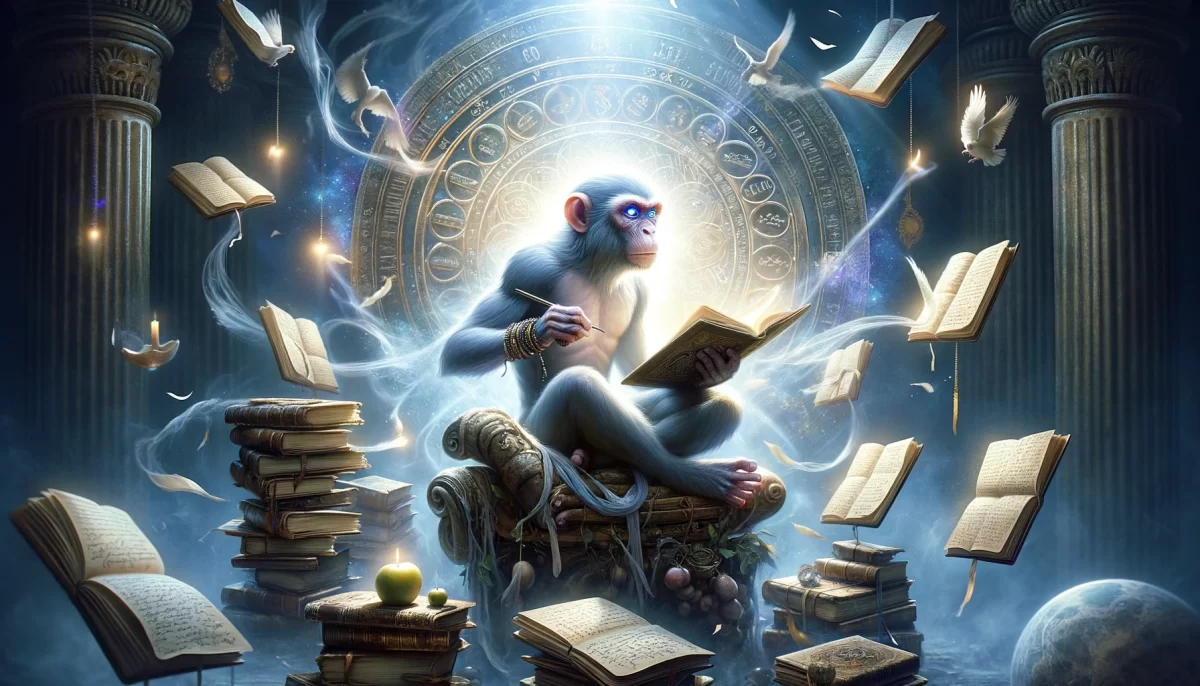
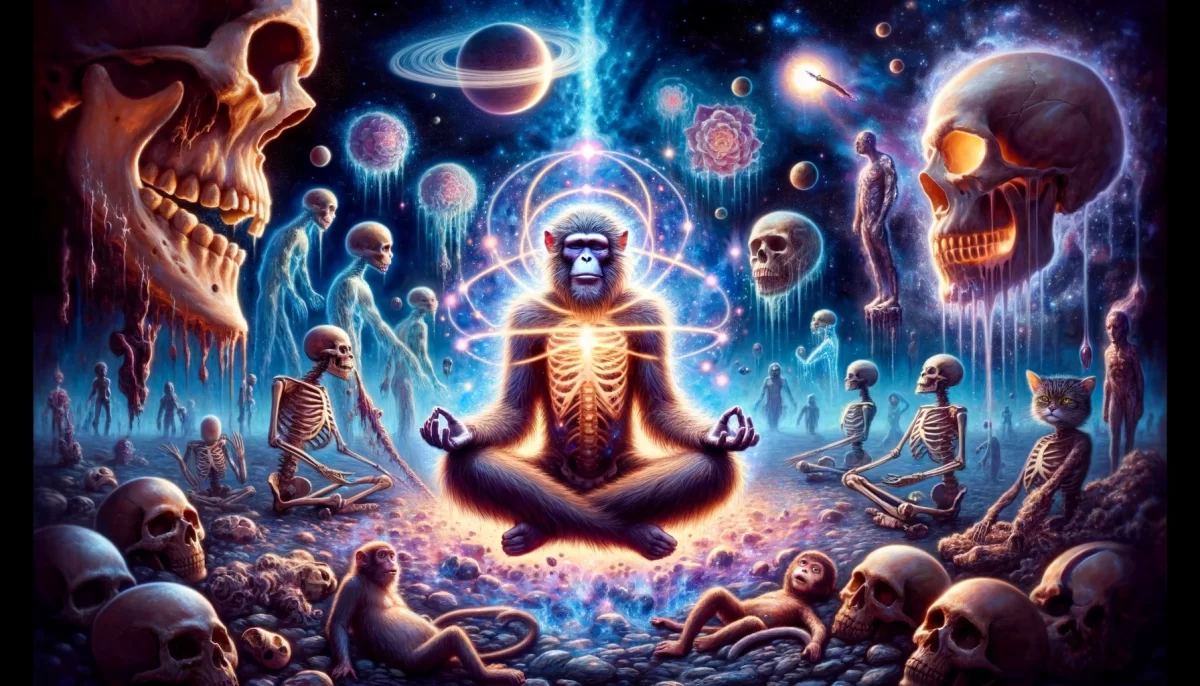
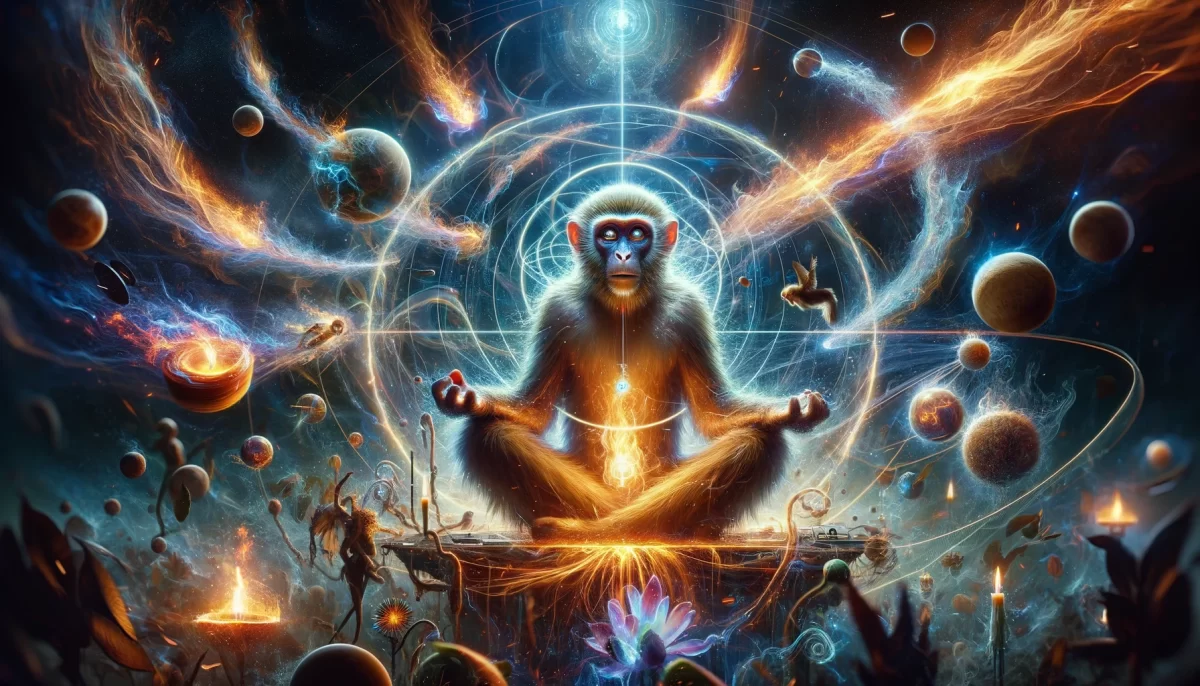
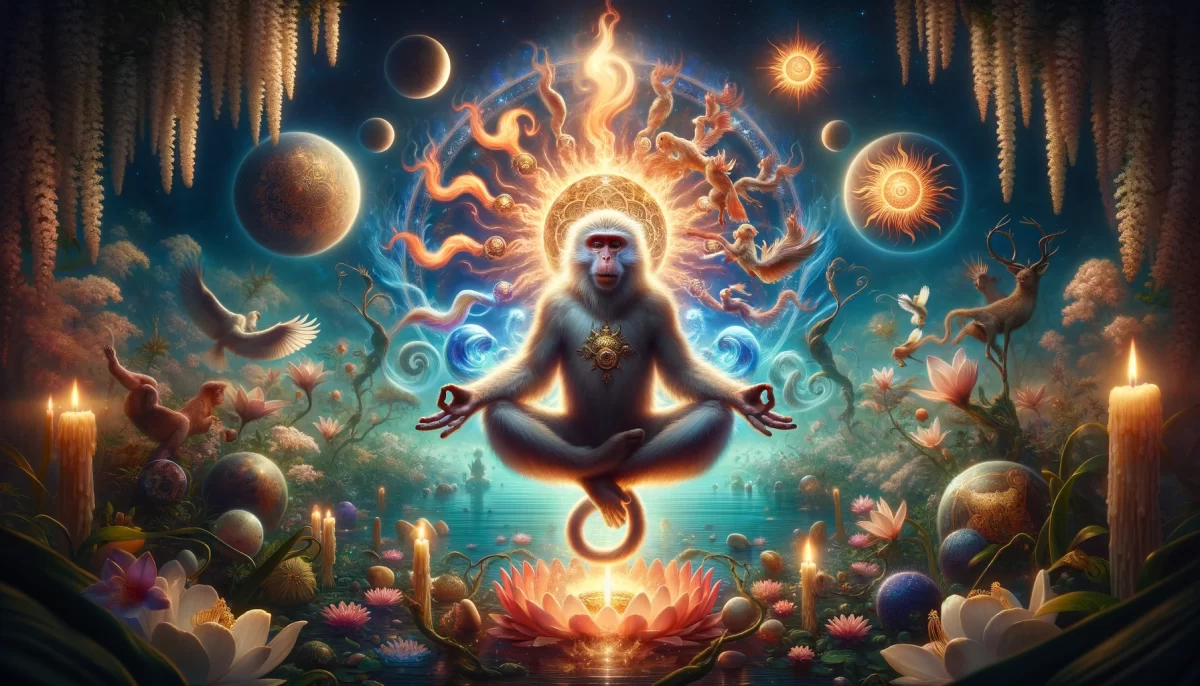
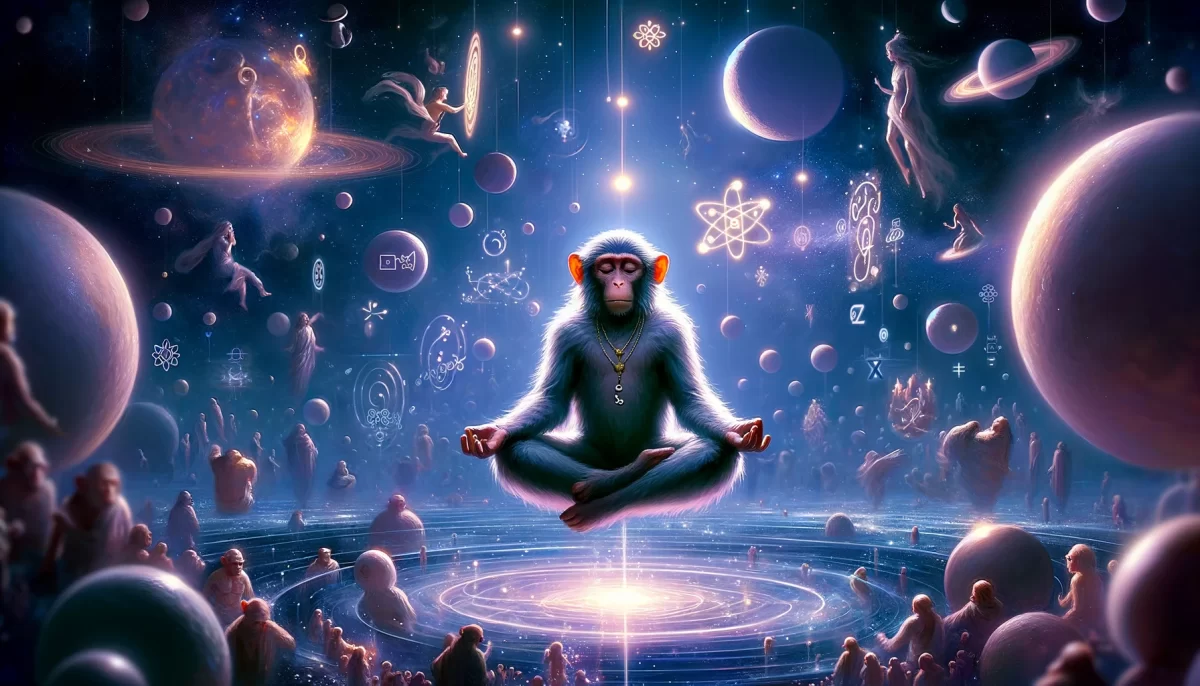
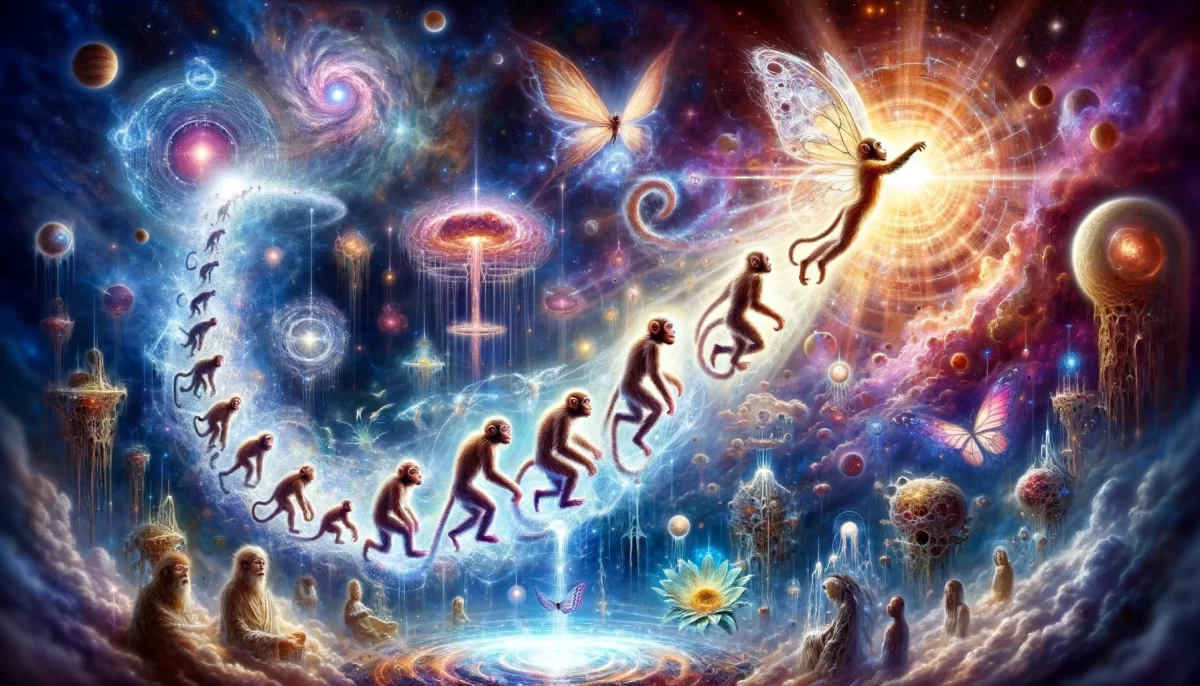
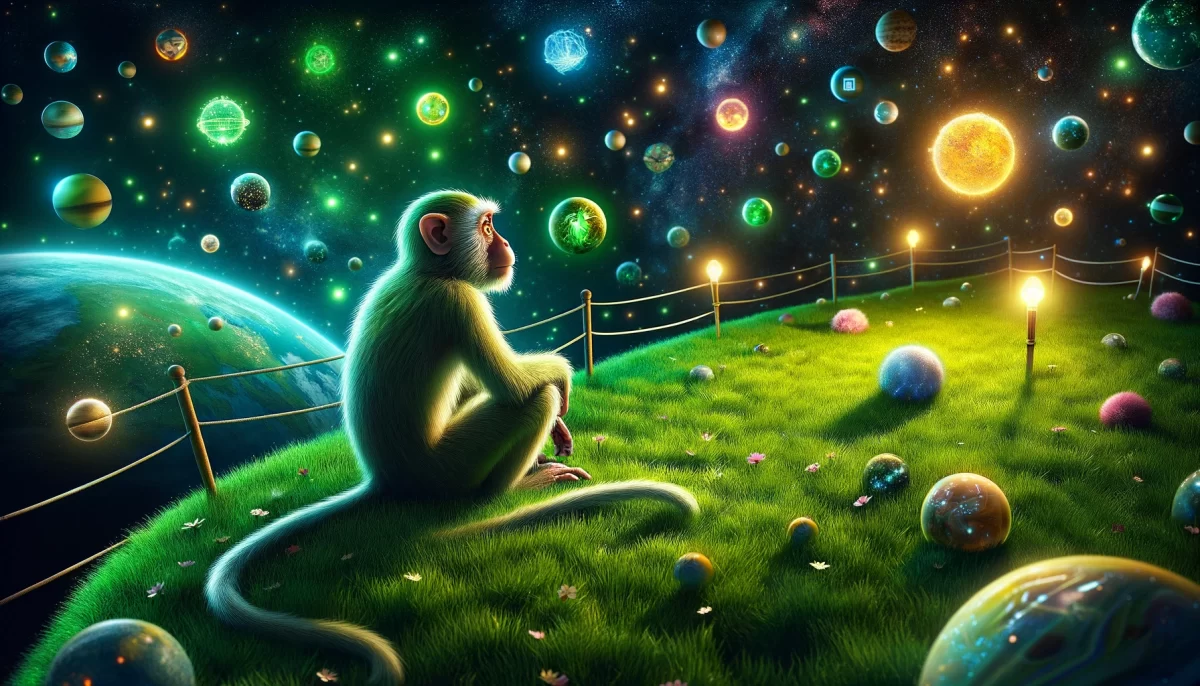
Ah, the fear of death—a paradoxical ailment that makes living less lively. It’s like being scared of water so much that you stop drinking it, slowly turning into a shriveled raisin. It’s that counterproductive cycle, right? Fearing the end so much that you never really embrace the middle.
Here’s the kicker: That fear isn’t making you immortal; it’s just making you miserable. And perhaps worse, it’s making you dread every little imperfection, turning minor aches into existential crises and small wrinkles into apocalyptic forebodings.
Instead of enjoying the novel that is our life, we end up obsessing over the last chapter, unable to appreciate the plot twists and cliffhangers along the way. It’s as if we skim through the pages of our own lives, worrying about that final sentence while ignoring the chapters that make it worth reading in the first place.
And then, at the end of it all, when the pages run out and we find ourselves floating in the cosmic soup of eternity, we realize how much of our life’s book was left unread due to our dread of its conclusion.
So, perhaps it’s time to put the fear aside and start savoring the story. After all, a well-lived life is the best antidote to the fear of death, and there’s no time like the present to start living.